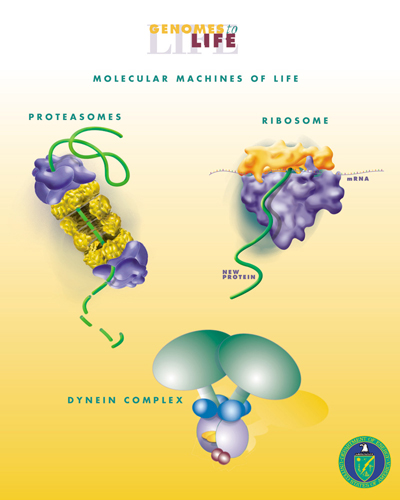|
University Of Stuttgart
The University of Stuttgart () is a research university located in Stuttgart, Germany. It was founded in 1829 and is organized into 10 faculties. It is one of the oldest technical universities in Germany with programs in civil, mechanical, industrial and electrical engineering, among others. It is a member of TU9, an incorporated society of the largest and most notable German institutes of technology. History From 1770 to 1794, the Karlsschule was the first university in Stuttgart. The University of Hohenheim in Stuttgart-Hohenheim, founded in 1818 and Stuttgart's oldest still existing university, is not related to the University of Stuttgart, except for some joint activities. What is now the University of Stuttgart was founded in 1829, and celebrated its 175th anniversary in 2004. Because of the increasing importance of the technical sciences and instruction in these fields, from 1876 the university was known as the Technische Hochschule Stuttgart (Stuttgart Institute of ... [...More Info...] [...Related Items...] OR: [Wikipedia] [Google] [Baidu] |
Public University
A public university, state university, or public college is a university or college that is State ownership, owned by the state or receives significant funding from a government. Whether a national university is considered public varies from one country (or region) to another, largely depending on the specific education landscape. In contrast a private university is usually owned and operated by a private corporation (not-for-profit or for profit). Both types are often regulated, but to varying degrees, by the government. Africa Algeria In Algeria, public universities are a key part of the education system, and education is considered a right for all citizens. Access to these universities requires passing the Baccalaureate (Bac) exam, with each institution setting its own grade requirements (out of 20) for different majors and programs. Notable public universities include the Algiers 1 University, University of Algiers, Oran 1 University, University of Oran, and Constantin ... [...More Info...] [...Related Items...] OR: [Wikipedia] [Google] [Baidu] |
Institute Of Technology
An institute of technology (also referred to as technological university, technical university, university of technology, polytechnic university) is an institution of tertiary education that specializes in engineering, technology, applied science, and natural sciences. Institutes of technology versus polytechnics The institutes of technology and polytechnics have been in existence since at least the 18th century, but became popular after World War II with the expansion of engineering and applied science education, associated with the new needs created by industrialization. The world's first institution of technology, the Berg-Schola (today its legal successor is the University of Miskolc), was founded by the Court Chamber of Vienna in Selmecbánya, Kingdom of Hungary (now Banská Štiavnica, Slovakia), in 1735 in order to train specialists of precious metal and copper mining according to the requirements of the industrial revolution in Hungary. The oldest German Institute of Techn ... [...More Info...] [...Related Items...] OR: [Wikipedia] [Google] [Baidu] |
Aerospace Engineering
Aerospace engineering is the primary field of engineering concerned with the development of aircraft and spacecraft. It has two major and overlapping branches: aeronautical engineering and astronautical engineering. Avionics engineering is similar, but deals with the electronics side of aerospace engineering. "Aeronautical engineering" was the original term for the field. As flight technology advanced to include vehicles operating in outer space, the broader term "aerospace engineering" has come into use. Aerospace engineering, particularly the astronautics branch, is often colloquially referred to as "rocket science". Overview Flight vehicles are subjected to demanding conditions such as those caused by changes in atmospheric pressure and temperature, with structural loads applied upon vehicle components. Consequently, they are usually the products of various technological and engineering disciplines including aerodynamics, air propulsion, avionics, materials science, st ... [...More Info...] [...Related Items...] OR: [Wikipedia] [Google] [Baidu] |
Electrical Engineering
Electrical engineering is an engineering discipline concerned with the study, design, and application of equipment, devices, and systems that use electricity, electronics, and electromagnetism. It emerged as an identifiable occupation in the latter half of the 19th century after the commercialization of the electric telegraph, the telephone, and electrical power generation, distribution, and use. Electrical engineering is divided into a wide range of different fields, including computer engineering, systems engineering, power engineering, telecommunications, radio-frequency engineering, signal processing, instrumentation, photovoltaic cells, electronics, and optics and photonics. Many of these disciplines overlap with other engineering branches, spanning a huge number of specializations including hardware engineering, power electronics, Electromagnetism, electromagnetics and waves, microwave engineering, nanotechnology, electrochemistry, renewable energies, mechatronics/control ... [...More Info...] [...Related Items...] OR: [Wikipedia] [Google] [Baidu] |
Computer Science
Computer science is the study of computation, information, and automation. Computer science spans Theoretical computer science, theoretical disciplines (such as algorithms, theory of computation, and information theory) to Applied science, applied disciplines (including the design and implementation of Computer architecture, hardware and Software engineering, software). Algorithms and data structures are central to computer science. The theory of computation concerns abstract models of computation and general classes of computational problem, problems that can be solved using them. The fields of cryptography and computer security involve studying the means for secure communication and preventing security vulnerabilities. Computer graphics (computer science), Computer graphics and computational geometry address the generation of images. Programming language theory considers different ways to describe computational processes, and database theory concerns the management of re ... [...More Info...] [...Related Items...] OR: [Wikipedia] [Google] [Baidu] |
Biological Engineering
Biological engineering or bioengineering is the application of principles of biology and the tools of engineering to create usable, tangible, economically viable products. Biological engineering employs knowledge and expertise from a number of pure and applied sciences, such as mass and heat transfer, kinetics, biocatalysts, biomechanics, bioinformatics, separation and purification processes, bioreactor design, surface science, fluid mechanics, thermodynamics, and polymer science. It is used in the design of medical devices, diagnostic equipment, biocompatible materials, renewable energy, ecological engineering, agricultural engineering, process engineering and catalysis, and other areas that improve the living standards of societies. Examples of bioengineering research include bacteria engineered to produce chemicals, new medical imaging technology, portable and rapid disease diagnostic devices, prosthetics, biopharmaceuticals, and tissue-engineered organs. Bio ... [...More Info...] [...Related Items...] OR: [Wikipedia] [Google] [Baidu] |
Process Engineering
Process engineering is a field of study focused on the development and optimization of industrial processes. It consists of the understanding and application of the fundamental principles and laws of nature to allow humans to transform raw material and energy into products that are useful to society, at an industrial level. By taking advantage of the driving forces of nature such as pressure, temperature and concentration gradients, as well as the law of conservation of mass, process engineers can develop methods to synthesize and purify large quantities of desired chemical products. Process engineering focuses on the design, operation, control, optimization and intensification of chemical, physical, and biological processes. Their work involves analyzing the chemical makeup of various ingredients and determining how they might react with one another. A process engineer can specialize in a number of areas, including the following: * Agriculture processing * Food and dairy pr ... [...More Info...] [...Related Items...] OR: [Wikipedia] [Google] [Baidu] |
Energy Engineering
Energy engineering is a multidisciplinary field of engineering that focuses on optimizing energy systems, developing renewable energy technologies, and improving energy efficiency to meet the world's growing demand for energy in a sustainable manner. It encompasses areas such as energy harvesting and Energy storage, storage, energy conversion, energy materials, Energy system, energy systems, Efficient energy use, energy efficiency, energy services, facility management, plant engineering, energy modelling, environmental compliance, As one of the most recent engineering disciplines to emerge, energy engineering plays a critical role in addressing global challenges like climate change, carbon reduction, and the transition from fossil fuels to renewable energy sources and sustainable energy. Energy engineering is one of the most recent engineering disciplines to emerge. Energy engineering combines knowledge from the fields of physics, math, and chemistry with economic and environmenta ... [...More Info...] [...Related Items...] OR: [Wikipedia] [Google] [Baidu] |
Chemistry
Chemistry is the scientific study of the properties and behavior of matter. It is a physical science within the natural sciences that studies the chemical elements that make up matter and chemical compound, compounds made of atoms, molecules and ions: their composition, structure, properties, behavior and the changes they undergo during chemical reaction, reactions with other chemical substance, substances. Chemistry also addresses the nature of chemical bonds in chemical compounds. In the scope of its subject, chemistry occupies an intermediate position between physics and biology. It is sometimes called the central science because it provides a foundation for understanding both Basic research, basic and Applied science, applied scientific disciplines at a fundamental level. For example, chemistry explains aspects of plant growth (botany), the formation of igneous rocks (geology), how atmospheric ozone is formed and how environmental pollutants are degraded (ecology), the prop ... [...More Info...] [...Related Items...] OR: [Wikipedia] [Google] [Baidu] |
Environmental Engineering
Environmental engineering is a professional engineering Academic discipline, discipline related to environmental science. It encompasses broad Science, scientific topics like chemistry, biology, ecology, geology, hydraulics, hydrology, microbiology, and mathematics to create solutions that will protect and also improve the health of living organisms and improve the quality of the environment. Environmental engineering is a sub-discipline of civil engineering and chemical engineering. While on the part of civil engineering, the Environmental Engineering is focused mainly on Sanitary Engineering. Environmental engineering applies scientific and engineering principles to improve and maintain the environment to protect human health, protect nature's beneficial Ecosystem, ecosystems, and improve environmental-related enhancement of the quality of human life. Environmental engineers devise solutions for Waste management, wastewater management, Water pollution, water and air pollution co ... [...More Info...] [...Related Items...] OR: [Wikipedia] [Google] [Baidu] |
Civil Engineering
Civil engineering is a regulation and licensure in engineering, professional engineering discipline that deals with the design, construction, and maintenance of the physical and naturally built environment, including public works such as roads, bridges, canals, dams, airports, sewage systems, pipelines, structural element, structural components of buildings, and railways. Civil engineering is traditionally broken into a number of sub-disciplines. It is considered the second-oldest engineering discipline after military engineering, and it is defined to distinguish non-military engineering from military engineering. Civil engineering can take place in the public sector from municipal public works departments through to federal government agencies, and in the private sector from locally based firms to Fortune Global 500, ''Fortune'' Global 500 companies. History Civil engineering as a discipline Civil engineering is the application of physical and scientific principles for solv ... [...More Info...] [...Related Items...] OR: [Wikipedia] [Google] [Baidu] |
Urban Planning
Urban planning (also called city planning in some contexts) is the process of developing and designing land use and the built environment, including air, water, and the infrastructure passing into and out of urban areas, such as transportation, communications, and distribution networks, and their accessibility. Traditionally, urban planning followed a top-down approach in master planning the physical layout of human settlements. The primary concern was the public welfare, which included considerations of efficiency, sanitation, protection and use of the environment, as well as taking account of effects of the master plans on the social and economic activities. Over time, urban planning has adopted a focus on the social and environmental "bottom lines" that focuses on using planning as a tool to improve the health and well-being of people and maintain sustainability standards. In the early 21st century, urban planning experts such as Jane Jacobs called on urban planners to take ... [...More Info...] [...Related Items...] OR: [Wikipedia] [Google] [Baidu] |










